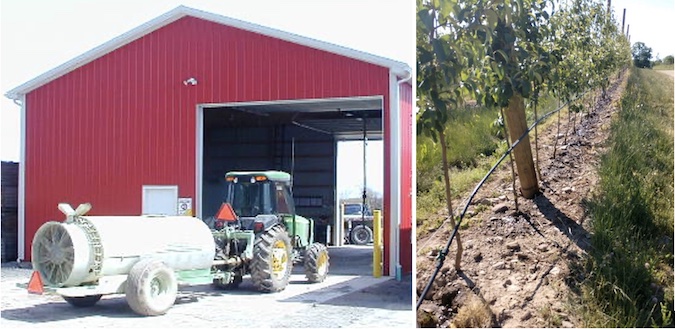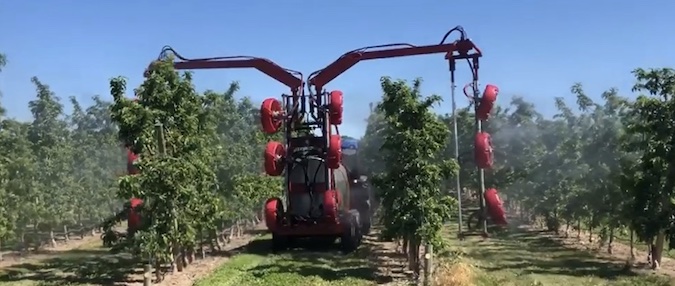Soil & Water receives nearly $200K in grants to assist farms with conservation projects
ALBION – The Orleans County Soil & Water Conservation District was able to secure nearly $200,000 in state funding with grants through the NYS Grown & Certified Program.
The funds will assist four farms in installation of conservation projects. The grants are each for about $50,000 and cover about 75 percent of the costs.
The grants will go towards the purchase of two Quantum Mist Tower Sprayers for the precision application of pesticides on orchards. These sprayers are part of the farming operations Integrated Pest Management Plans, said Katie Sommerfeldt, Soil & Water district manager in Orleans County.
“The new Quantum Mist Tower Sprayers will be integrating new technology of applying pesticides to orchards by targeting the trees and fruit that need the application and applying the pesticides using low velocity fans that reduce pesticide over spray and drift,” she said.

(Left) One of the Soil & Water grants will be for an Agrichemical Handling Facility similar to this one. (Right) Soil and Water also was awarded funds for installation of micro-irrigation systems.
Another grant includes installation of a micro-irrigation system that works by strategically placing irrigated water within the root zone of a newly planted orchard,” Sommerfeldt said.
“Currently, the farm is irrigating their orchard by using overhead irrigation,” she said. “Overhead irrigation results in excessive water input and waste, excessive field runoff, and the possibility of produce contamination.”
Some of the advantages to installing micro-irrigation include water conservation, easy automation, more efficient fertilizer use, and reduction in runoff and erosion, plus the irrigation water never touches the fruit so the possibility of contamination through irrigation water is eliminated, Sommerfeldt said.
Another grant will assist a farm with installation of an Agrichemical Handling Facility. This facility will give the farm a safe place to store and mix pesticides indoors with an impervious floor, Sommerfeldt said.
“This building is designed to contain 125 percent of the volume of the farm’s largest sprayer, so if there is a spill in the building all the pesticides will be contained and not allowed to runoff into the environment,” she said.







































































